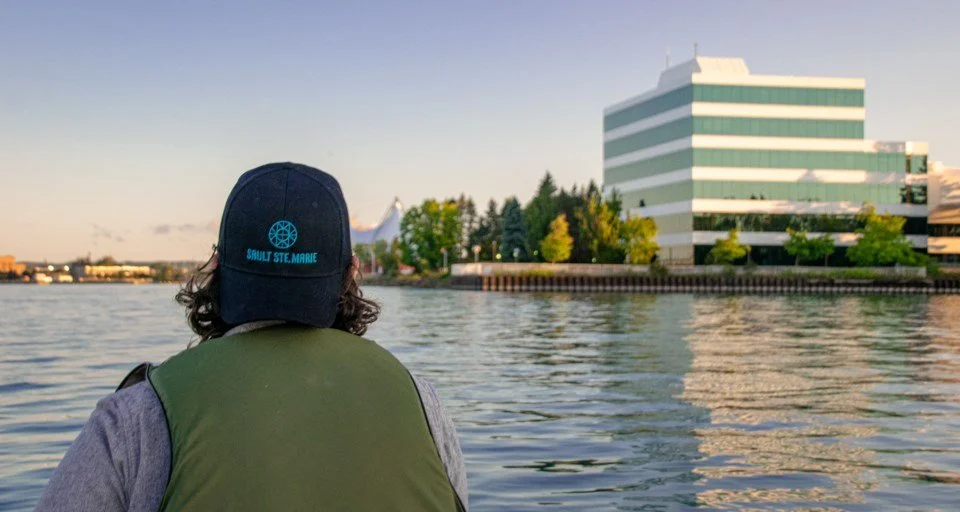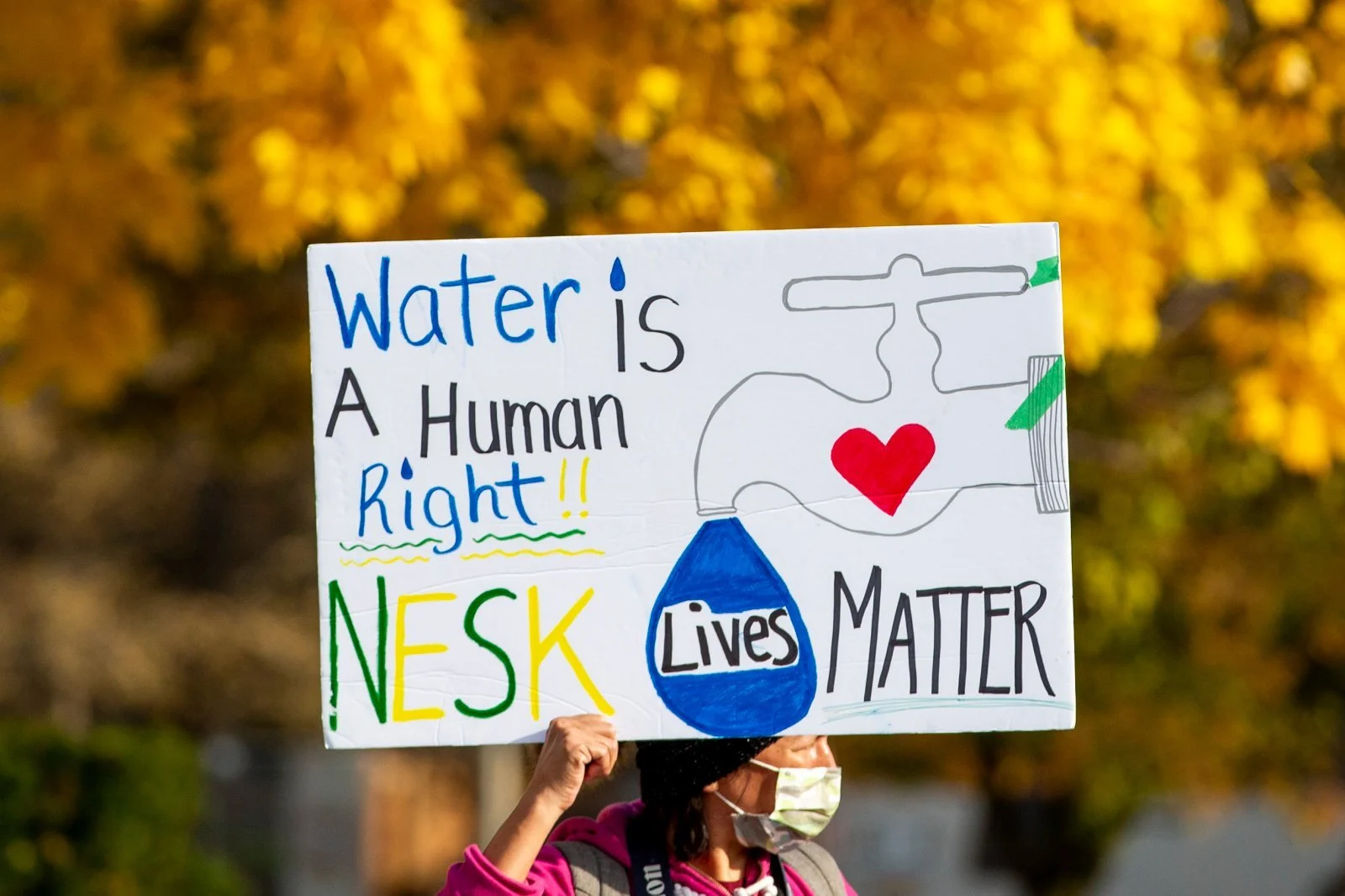Leaders and community members in the Kanien'kehá:ka (Mohawk) of Kanesatake are demanding help in decontaminating a dump site that could affect water quality in one of Quebec's most popular lakes. Mohawk Council of Kanestake Grand Chief Victor Bonspille said he is in contact with Canada and his community's environmental protection office to find a solution to toxic water leaking off a now-closed recycling operation in the community west of Montreal.
Kawartha Conservation program helps restore fish habitat in Kawartha Lakes
Kawartha Conservation is encouraging local landowners to continue to help Bring Back the Fish through the restoration of stream banks and efforts to reduce erosion. “Increased development of urban areas can lead to additional strain and cause challenges for fish habitat and water quality, which is why it is essential that we work with local landowners and municipal partners to protect local species,” stated Kawartha Conservation’s landowner and community support officer Danielle Marcoux-Hunter, noting the outstanding support the agency has received from community members in the past has been extremely beneficial.
Oji-Cree First Nation frustrated as majority of community members ineligible for drinking-water settlement
Leaders from an Oji-Cree First Nation in Treaty 9 in Ontario say they want the Canadian government to take action to properly compensate all their community members enduring a long-term boil-water advisory, after learning most of them won't be eligible for a class action settlement. In December 2021, Canada's Federal Court and Manitoba's Court of Queen's Bench jointly approved an $8-billion settlement for First Nations living under drinking-water advisories lasting longer than one year.
Wunnumin First Nation Calls on Canada to Ensure Community Members Receive Individual Compensation Under Class Action Settlement
Chief and Council of Wunnumin Lake First Nation are calling on the Government of Canada to ensure that compensation is provided for community members who have suffered from boil water advisories but are being denied compensation under the terms of a settlement agreement for class-action litigation on Canada’s failure to provide safe drinking water in First Nations communities.
Norway House community members voice concerns on potential northern Manitoba nickel mine
Members of Norway House Cree Nation raised concerns about information sharing, environmental impacts and community employment at a consultation for a potential nickel mine in the area. Last Thursday, Flying Nickel Mining Corporation and the Government of Manitoba hosted a public consultation around the Minago Nickel Project — a possible development following a memorandum of understanding that was signed by the First Nation's chief and Flying Nickel in February. The mine could be under construction starting in 2024.
First Nations governance and federal representatives come together at Ontario Joint Gathering in Toronto
First Nations Chiefs, community members, and representatives came together with federal bureaucrats at the Ontario Joint Gathering hosted by Indigenous Services Canada in Toronto on Oct. 25 and 26. The two-day gathering at the Chelsea Hotel in Toronto was an opportunity to strengthen relationships between the Canadian government and First Nations governments, with a series of Federal and First Nations speakers reporting to delegates. Over 45 participants registered over the two days, with 100 attending virtually.
New Muskrat Falls monitoring committee focuses on food, water and methylmercury levels
The head of a new committee tasked with monitoring and health management oversight for Muskrat Falls says he's focused on involving those who know the area best. The government of Newfoundland and Labrador announced last week it has established a Muskrat Falls Monitoring and Health Management Oversight Committee. It's part of a list of recommendations made by the Independent Expert Advisory Committee in 2018 to address concerns related to methylmercury from the controversial hydro-electric project.
Expert Q&A on water crisis amidst climate change
The threat to water security is just as urgent as the climate crisis, says Oliver M. Brandes, project lead of the POLIS Water Sustainability Project at the University of Victoria. For more than 20 years, Brandes has worked with UVic researchers, students and collaborators, as well as government committees, community members and other partners to raise the alarm while continuing to nourish a sense of hope.
Indigenous program allows youth to tackle water issues in their community
A Canada-wide Indigenous water initiative is providing young people with an opportunity to tackle water problems in their communities. According to Kimberly Brown, a Tsimshian water engineer in training and a member of the Lax Kw’alaams Band in British Columbia, the goal of the challenge is ” to create Indigenous youth who want to become water engineers or scientists…” “It’s just the opportunity for eight communities to participate and solve their own water issues, and it’s judged by their own communities not sure, so it’s very Indigenous-led and Indigenous supported.”
Canada Water Agency task force releases report based on community feedback
The city-led task force responsible for pitching Sault Ste. Marie as the future headquarters for the forthcoming Canada Water Agency has released its findings following a months-long process of community engagement. The report, which is now live on the task force’s website, is the result of 10 in-person and virtual community discussions held between August and December of last year that were facilitated by Lake Huron North Program Coordinator Dr. Elaine Ho-Tassone. More than 200 participants - drawn from local organizations, the Indigenous community, youth and the general public - provided their perspectives for the report.
My elective rotation in Iqaluit, Nunavut : strikingly eye-opening
For 60 days, a public health do-not-consume water order was put in place as a precaution when petroleum hydrocarbons were found to be possibly contaminating the city’s drinking water supply. This led to a community response to provide safe drinking water by getting river water from the local Silvia Grinnell territorial park river and mobilizing resources in Canada to bring in bottled water for Iqaluit, a community of approximately 8,000 people.
Neskantaga First Nation taking Ontario to court over 'inadequate' consultation on Ring of Fire
Neskantaga First Nation is taking Ontario to court looking for "ground rules" on how the province should consult and accommodate Indigenous communities that are in a state of crisis. The remote Oji-Cree First Nation, located about 430 kilometres north of Thunder Bay, has been under a boil-water advisory for 26 years and a state of emergency since 2013, when seven people died by suicide in less than a year. Those issues have been compounded by the pandemic, leaving Neskantaga ill-equipped to engage in what the province has presented as consultation on a project to build a road through its territory to the mineral-rich Ring of Fire, community leaders say.
How colonial systems have left some First Nations without drinking water
Rebecca Zagozewski, executive director of the Saskatchewan First Nations Water Association, said she has seen contractors save on costs when building water treatment plants on reserves by using obsolete parts and failing to include maintenance manuals, ventilation or chemical rooms, and bathrooms. “Engineering companies will put in their bids obviously as low as they can go,” said Zagozewski.
Healthy rivers: How DNA tool can help keep tabs on freshwater quality
First Nations communities pursue clean drinking water through the courts
This time of year, with the temperature plunging below -20 C, a snowmobile and an ice chisel are required tools for anyone in Tataskweyak Cree Nation in need of fresh water. There’s the bottled stuff, trucked into town courtesy of the federal government, but the weekly shipment of 1,500 cases is only sufficient to meet basic consumption needs. For cleaning, cooking and basic hygiene water, many residents need a supplementary source. And rather than use their tainted tap water, they follow a snowmobile trail several kilometres to Assean Lake, pails in hand.
Former Neskantaga contractor accused of cutting corners in other First Nations
“They cut corners every day, every day,” said Justin Gee, vice-president of First Nations Engineering Services Ltd. Gee said he encountered these recurring problems while overseeing the work of a construction firm, Kingdom Construction Limited (KCL), building a water treatment plant 10 years ago in Wasauksing First Nation, along the eastern shore of Georgian Bay, about 250 kilometres north of Toronto. “You have to be on them every step of the way,” said Gee, who was the contract administrator on the project. “You can’t leave them on their own.”
Building trust in its tap water will be Neskantaga’s next big challenge
The chief of the First Nation in Northern Ontario that has suffered through the country’s longest continuous boil water advisory is hopeful that water coming out of the taps in the homes of Neskantaga will be safe to drink sometime in early 2021. The question now is: Even if public health and First Nation officials pronounce the water safe to drink, will anyone trust in the purity of what comes out of their taps?
Members of Neskantaga come home today to boil water advisory
Another factor in the chief's decision is the fact that the plant still isn't running at capacity. It's designed to produce 3.8 litres of water per second for each of its two treatment lines, but the most it can produce now is less than three litres, according to project progress reports obtained by CBC News. "The amount would still meet the [community's] need," said Lalita Bharadwaj, a professor at the School of Public Health at the University of Saskatchewan who studies access to safe drinking water in First Nations. "But it raises concerns about the sustainability of the system, and operations and management of the system." Bharadwaj said there should be four operators working at the plant — two who are certified and two others from the local community who can receive training, which she said could take years.
Water project a first in Canada
The first Indigenous owned and operated water utility in Canada developed by way of public-private-community partnership is a step closer to reality in the North Okanagan. A formal agreement has been signed between the Okanagan Indian Band Group of Companies, EPCOR and Enterprise Canada. The companies will identify commercial opportunities in utilities-related infrastructure, including water, wastewater and irrigation management, to provide quality drinking water and ensure adequate firefighting supply to serve the OKIB reserve lands.
Stuck in a hotel during a Christmas pandemic, Neskantaga members wait for water crisis to end
"This investigation is going to open a can of worms," Quisess said. "We want Canadians to know the full story. We want Canadians to know how the tax dollars are used." Neskantaga's plant was built in 1993 and has never adequately treated and disinfected water. A long-term drinking water advisory was put in place on Feb. 1, 1995, less than two years after the plant was commissioned. It's been in effect ever since.





















